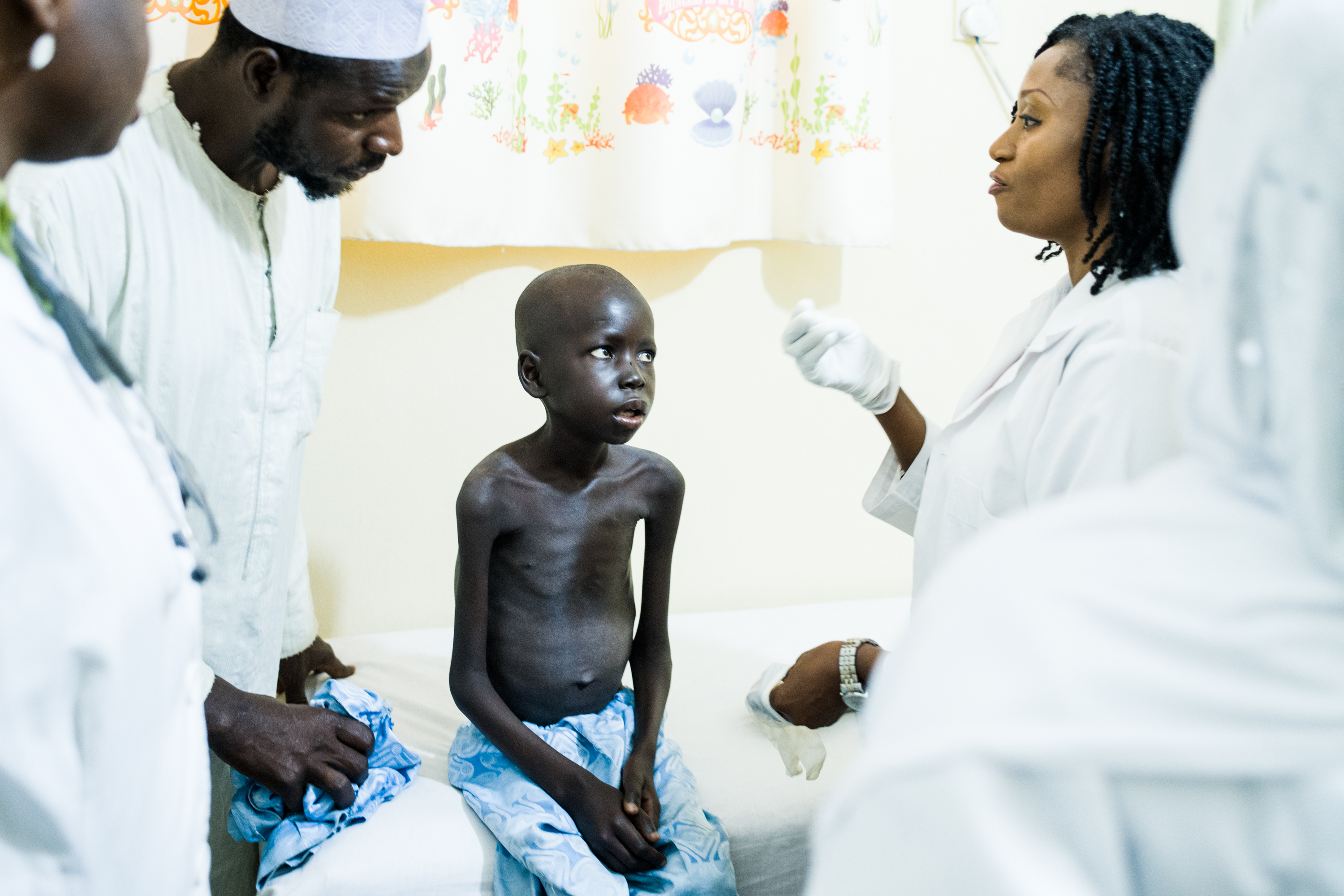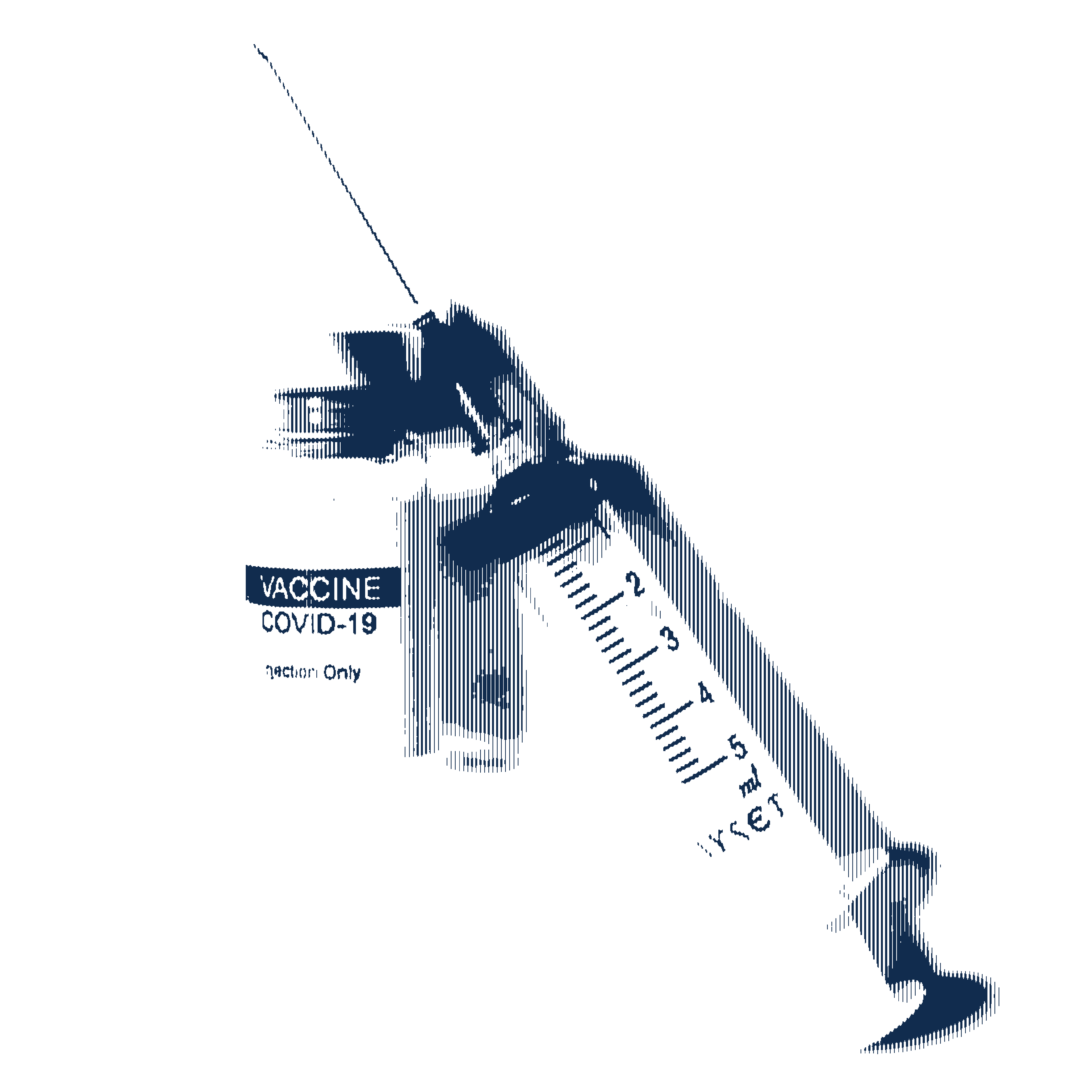Central Asia and Eastern Europe have the world’s fastest-growing HIV epidemic, and Russia accounts for more than 80 percent of those infections. As at-risk groups like injection drug users are stigmatized and ignored, health officials say the death toll will soon top 30,000 lives per year. William Brangham reports in the first of the NewsHour series, "The End of AIDS: Far from Over."

As a nonprofit journalism organization, we depend on your support to fund more than 170 reporting projects every year on critical global and local issues. Donate any amount today to become a Pulitzer Center Champion and receive exclusive benefits!
Read the Full Transcript:
Judy Woodruff: But, first, we return tonight to our ongoing look on the global fight against HIV-AIDS, produced in partnership with the Pulitzer Center. William Brangham begins a new five-part series, and he's here tonight. So, William, this is a follow-up to the series done in 2016. Tell us what is different about this one.
William Brangham: That's right, Judy. In the last project, we looked at places that were starting to turn the tide against HIV. Places that gave researchers hope that ending AIDS actually might be possible. This year, we wanted to look at places where those challenges are still enormous. So, producer Jason Kane and I, working again with Jon Cohen of "Science" magazine, went to three very different locations: Russia, Nigeria, and Florida. These are places where the fight against HIV is not going so well. Tonight, we start in Russia, where some proven strategies to stop the spread of HIV are being ignored and shut down. Welcome to the last needle exchange program in the city of Kazan, Russia. What they do here is textbook HIV prevention: free, clean needles for those who need them; HIV tests, so people know if they're infected and can get treatment right away. For those who can't make it to the center, counselors like Marcel Zaripov will come to them. This father, Vyacheslav Ignatenko, shoots drugs several times a day. He's also HIV-positive. Injection drug use has been the main driver of Russia's epidemic. In some cities today, a staggering 30 percent of people who inject drugs are also HIV-positive. But because Ignatenko gets these regular visits, he's taking his HIV medication. His virus is suppressed, so he's likely not infecting anyone else.
Marcel Zaripov (through translator): HIV is already too big of an epidemic, isn't it? And I want people who use drugs to have the things they need: needles and condoms, and for the disease not to spread. That's what I think about.
William Brangham: These proven techniques helped this city of 1.2-million keep a growing HIV epidemic largely at bay. New infections among people who inject drugs here dropped from 1,000 a year in 2001 to just 150 several years later. But these kinds of efforts are increasingly rare in Russia. The government passed a law in 2012 branding many groups that do this kind of work as 'foreign agents' because they take donations from abroad. That's widely understood to mean spy or traitor. Many closed down as a result. Even this program is in jeopardy.
Larisa Badrieva (through translator): There will be no money to pay for the services you visited today. Maybe it will survive for a couple of months, maybe two to three months, but then it will cease to exist.
William Brangham: Larisa Badrieva is an epidemiologist who helps run these programs. Recently, the Russian government also stopped taking money from The Global Fund, which is the world's largest donor of government and private sector money into HIV/AIDS programs. And despite promises to the contrary, the Russian government has not filled the gap.
Larisa Badrieva (through translator): Well, we have been waiting for a long time for this funding to stop. Honestly, we have done everything we could in this situation. But if there are no radical changes in the drug scene, we will see a gradual increase in HIV infections in all groups.
William Brangham: Russia now has the fastest-growing HIV epidemic in Eastern Europe and Central Asia. Over 80 percent of new infections in the region occur here. It's one of the few places in the world where the epidemic continues to get dramatically worse. Of the estimated one million Russians who are infected, only a third are getting antiretroviral treatment.
Michel Kazatchkine: I would say, in short, they — they did it all wrong.
William Brangham: Michel Kazatchkine was head of The Global Fund from 2007 to 2012. As Russia's economy grew, Russian officials told the fund they didn't need any more help.
Michel Kazatchkine: And they became defensive, and said, 'OK, we will do things ourselves now — from now.' So, they said, 'First we don't want The Global Fund anymore. We can manage ourselves. We will set up our own strategy.' And that's where they basically closed everything.
William Brangham: Kazatchkine is now the U.N. secretary-general's special envoy for HIV/AIDS in the region. We visited a gay film festival with him in St. Petersburg. Gay and bisexual men are another key driver of HIV, and another population Kazatchkine says Russia is ignoring. He says Russia's rejection of so many proven prevention strategies is partly why 20,000 to 30,000 people are dying of AIDS in Russia every year.
Michel Kazatchkine: I just cannot accept that there has been so many missed opportunities. Until they really scale up, that will translate into many more new cases in the years to come and many more deaths.
William Brangham: In some cases, even well-intentioned efforts can have the opposite effect. We traveled over 1,300 miles east to the city Yekaterinburg, where one infamous anti-drug campaign epitomized what many say is the exact wrong way to address HIV.
Yevgeny Roizman (through translator): I am one of the many who decided to revolt and rise up against the drug use in our country.
William Brangham: Yevgeny Roizman is one of the most influential voices in this city. He's been mayor for five years. He just stepped down last month. And in the realm of Russian politics, Roizman would be considered a liberal. He's a vocal critic of Vladimir Putin, and he urged voters to boycott the last election. Despite his vast collection of religious iconography, Roizman's also pushed back against his country's religious and cultural conservatism. He very publicly took an HIV test to show how easy it is. But Roizman came to prominence in the early 2000s, running a vigilante-style anti-drug campaign called City Without Drugs. This ABC Australia documentary shows how it worked: Nighttime raids where men grabbed drug users and carted them off to other sites. There, they'd be handcuffed to beds as they went through withdrawal. Roizman says the city's drug crisis at the time called for a strong response.
Yevgeny Roizman (through translator): When we stopped the drug trade, the parents started to bring us many drug addicts, 30, 40, 50 people a day, on chains, on rope, in the trunk, half-rotten. The moms and dads were weeping, down on their knees, begging, 'Please, do whatever you want, just save them.'
William Brangham: This HIV-positive man who went through the program says he was chained to a bed. There was no counseling. He says he didn't tackle his addiction until long after he was released.
Former Patient (through translator): Well, it might've helped some, but the majority at that time went backwards.
William Brangham: Methadone and other opioid-substitution therapies, like at this center in the U.S., are outlawed in Russia. The World Health Organization considers this proven addiction therapy an 'essential tool' in the fight against HIV because it can stabilize a drug user's life, move them away from injecting drugs, and help them also stay on HIV medication. But this woman, who also went through the program, said not only did they get questionable addiction treatment, but one staffer threatened to reveal people's HIV status.
Former Patient (through translator): They would bring these doctors and take everybody's blood, and those who tested positive for HIV, they said they'd post online. With photographs and last names.
William Brangham: One of the public slogans of Roizman's program was "Drug Addicts Are Bastards." And while lawsuits alleging kidnapping and torture eventually forced the program to close, Roizman stands by his approach and says he did nothing wrong. He says thousands got over their addictions, and he believes the critics have it backwards.
Yevgeny Roizman (through translator): The human rights activists, the abstract humanists said, 'Why are you talking like that about drug addicts and crooks? They are humans as well. They are people like you. But they are poor, unhappy, and sick.' My job was to ensure that children do not use drugs, and their job was to see that those who use drugs were treated well by society. They're entirely different.
Jon Cohen: Everywhere I have been in the world where people inject drugs, the culture has rejected that community.
William Brangham: Jon Cohen has been covering HIV/AIDS for over 25 years for "Science" magazine, and he was our partner on this series. He says this harsh treatment of addiction, not seeing it as an illness, only fuels the spread of HIV.
Jon Cohen: The medical profession and the World Health Organization, the United Nations has — they have all concluded that it's an illness.
William Brangham: That addiction is an illness.
Jon Cohen: Addiction's an illness. Treat it like — these are not vermin. They're humans. They need help. And if you adopt that philosophy, you can stop the virus. On the other hand, if you treat these as just bad people, throw them in the trash, you're fueling your epidemic.
William Brangham: So, what does addiction treatment look like elsewhere in Russia? Many are like this: small, in-patient centers where patients go cold turkey and which follow something close to the 12-step model. Most government-funded programs offer a quick detox, and then you're back out.
Vinay Saldanha: We have tried rehab programs. We have tried cold turkey programs, and they certainly don't work. And so we need to do something to try and get ahead of the epidemic.
William Brangham: Vinay Saldanha runs the UNAIDS office for Eastern Europe and Central Asia, based in Moscow.
Vinay Saldanha: We have seen, really since 2010, the epidemic in Russia getting significantly worse every year by almost 10 percent per year. And, hopefully, things are going to start getting better very, very quickly, rather than continuing to get worse.
William Brangham: But, for now, Russia's prevention efforts seem sparse. In Moscow, these two volunteers from the small grassroots Andrey Rylkov Foundation are the only people out tonight dispensing free, clean syringes. This in a city of almost 12 million. This man asks for a bag to carry his needles home. Sorry, they say, no money for bags. So, he puts them in his pocket. They warn him to be careful. It's all they can do.
For the "PBS NewsHour," I'm William Brangham in Moscow.
Judy Woodruff: Tomorrow night, William reports again from Russia and looks at why critics say the government is failing to respond to the epidemic.







